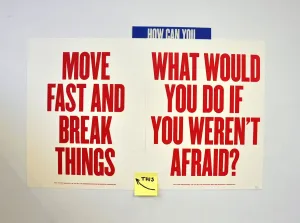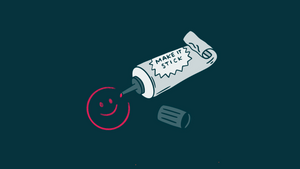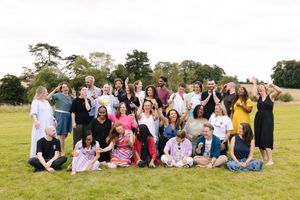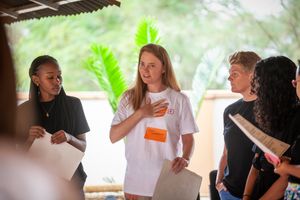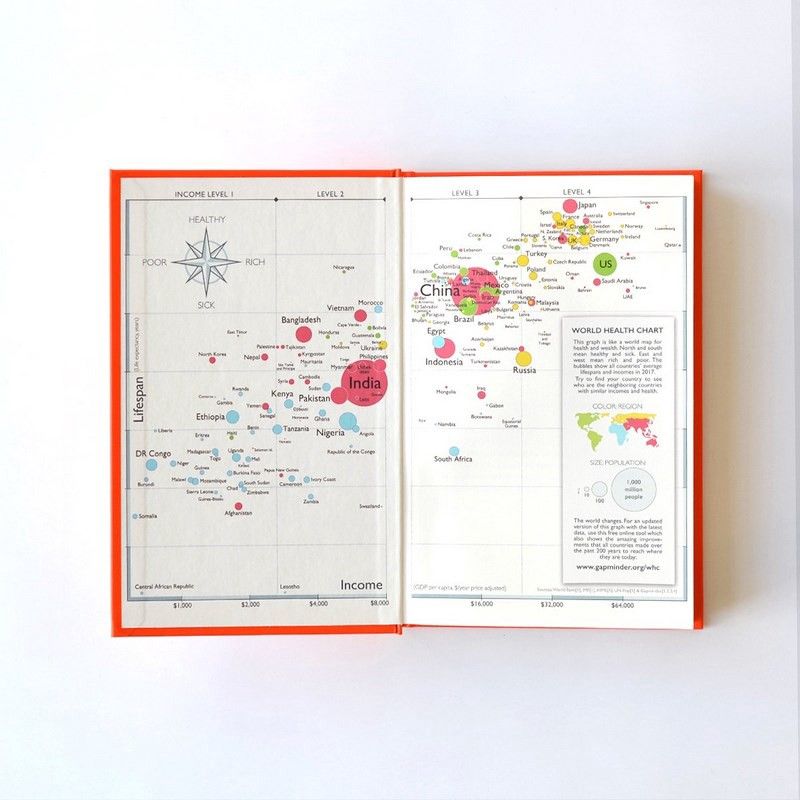
The books and podcasts that shaped our thinking in 2018
So, 2018 happened. A disquieting year, with seemingly higher highs and lower lows than ever before across climate, politics, economics, society.
At Brink we work with our clients to navigate uncertainty and tackle some of the biggest challenges of our time. One of our key roles is to scan the horizon, spot trends and use that knowledge to align teams around a vision of the future they can work towards. In such complex, uncertain times it can be hard to keep up and make sense of the world. To help us do so, we turn to science, data, stories, and the wisdom of others.
These are just some of the books, podcasts and media that have helped us this year. Curated highlights. We’ve clustered them into the conversations we have with our clients and partners:
- Rethinking organisations for the future
- From human doing to human being
- Frontier Tech and its impact on economy and society
- Facts and our mental models to process them
- Innovation method past, present and future
- What’s next on our reading lists
We hope you find them as insightful as we did, and we’d love to hear what you’ve been reading and listening to in the comments below.
On rethinking organisations for the future
- Worklife, Adam Grant (podcast). The entire Worklife podcast series is excellent and worth digging into, with particular highlights including how NASA’s space mission teams build psychological safety before they go to space; how Trevor Noah and his team build on each others’ ideas and cultivate the trust that lets them churn out the Daily Show, daily; and an insight into a useful personality distinction that could change the way you work, depending on whether you’re a work/life integrater or segmenter

- An Everyone Culture, Lisa Laskow Lahey and Robert Kegan. What if everyone in your organisation could overcome their own internal barriers to change and use errors and vulnerabilities as prime opportunities for personal and company growth? A practical guide on how to make the shift to a deliberately developmental organisation.
- Team of Teams, Stanley McChrystal. The release of his latest book, Leaders, earlier this year reminded us to revisit his seminal work with fresh eyes. What if you could combine the adaptability, agility, and cohesion of a small team with the power and resources of a giant organization?
- Moving the introvert-extravert conversation on, by Evernote. There are different types of introversion and extraversion, it’s much more nuanced than the pop psychology would have us believe and actually ~60% of us are ambivert. How might a better understanding helps us design better working environments and teams for everyone?
From human doing to human being
Who knew that a detailed history of our cephalod friends the octopus could be so insightful about our own behaviours? I love the author’s view that “when you dive into the sea, you are diving into the origins of us all”. He points out that the octopus is “an independent experiment in the evolution of large brains and complex behaviour” having developed on a different evolutionary path from us. That’s why they tell such a fascinating story of what we can learn from them about the minds of animals, including our own.
– Abi Freeman, Co-founder, Brink
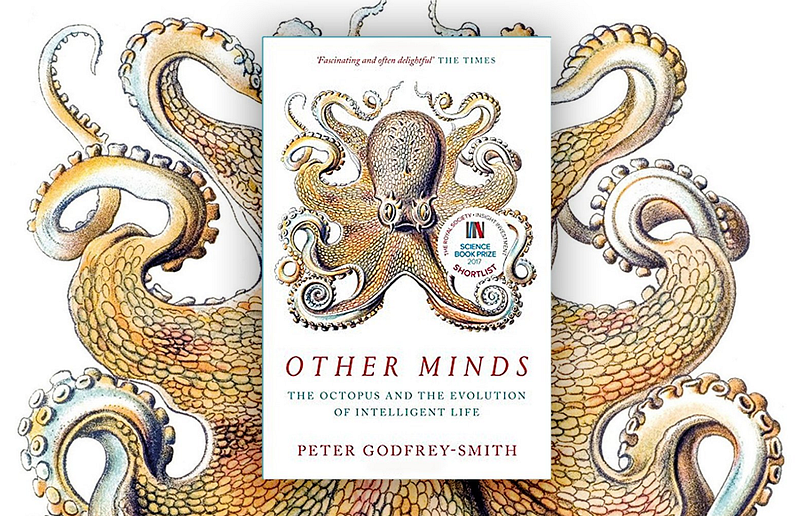
- Tara Brach, from human doing to human being. Like Sisyphus eternally pushing the boulder up the hill, we can spend many moments busily trying to manage our life. This two-part talk explores how we can awaken from our non-stop doing, including the incessant inner narrative, and discover the mystery, love and freedom that arises in Being.
- Becoming, Michelle Obama. Prepare for a reckoning. How do you show up in this world? Who are you becoming? What is your purpose? Michelle shares her story as she answers these questions and allows those answers to take her from the plush legal offices and swanky cars to City Hall and public service.
I devoured Michelle Obama’s Becoming, until the last hour or so, when the devouring became savouring as I doled out tiny portions, not wanting to let her or the story go — though knowing how the story ends may have had something to do with it. The audiobook is, I believe, doubly special. Michelle narrates, audibly welling up through some passages and so will you.
– Lea Simpson, Co-founder, Brink
On frontier tech and its impacts on economy and society
- The Value of Everything, Mariana Mazzucato. Modern economies reward activities that extract value rather than create it. This must change to insure a capitalism that works for us all. The book shows how the foggy notions of value create confusion between rents and profits, a difference that distorts the measurements of growth and GDP. Mariana’s lesson is urgent and sobering: to rescue our economy from the next, inevitable crisis and to foster longterm economic growth, we will need to rethink capitalism, rethink the role of public policy and the importance of the public sector, and redefine how we measure value in our society.
- Silicon States, The Power and Politics of Big Tech and What It Means for Our Future. Lucie Greene. With Google and Apple providing education and healthcare, Uber on transport and Facebook’s unregulated media, multinational tech giants have resisted government regulation while pushing to take over functions traditionally provided by the state. Lucie looks at the unchecked rise and rise of Silicon Valley, and the unintended consequences that’s having on society.

- Feminist Internet Manifesto. Feminist Internet is an activist community and initiative sprung from a UAL tech incubator and design programme. They pose powerful questions like how might we erase feminism. If the Feminist Internet is successful, their argument goes, they will have erased the need for feminism. Bringing together art, technology, science and play their collective is gathering traction and is working on projects like redesigning a feminist Alexa. We’re excited to see what 2019 brings.
- Three Horizons Framework explainer, Kate Raworth. We’ve been thinking a lot about the human and ethical questions it takes to make tech “work”, and work for all. Highlights this year include: Kate Raworth’s adaption of the three horizons framework asking whether a technology is being captured in old, exploitative ways or new, empowering ways.
- Two of our favourite takes on what happens when tech meets the messy, human world are the New Yorker’s long read on why doctors’ hate computers, and a fascinating forecast of what will happen when self-driving cars are mainstream.
As we better understand how tech might have consequences beyond its intended cause-effect, we’ve been exploring systems thinking as a tool for better grasping this in the work we do. I’d recommend this free 8-hour Open University introductory course for anyone looking to do the same. At an organisational level, I also love these very practical tips from the Singularity Hub on managing the unintended consequences of technology.
– Asad Rahman, Innovation Manager, Brink
On facts and our mental models to process them
- Factfulness, Hans Rosling. Bill Gates called it “One of the most important books I’ve ever read” and we agree. At Brink, we spend a lot of time uncovering and addressing unconscious biases. That’s why this book really struck a chord. Hans Rosling argues that we are terrible at guessing facts –scoring worse than a chimpanzee in tests. Our problem is that we don’t know what we don’t know, and even our guesses are informed by unconscious and predictable biases. Factfulness offers a new thinking habit that will change the way you see the world and empower you to respond to challenges and opportunities of the future.
- Bad Science, Ben Goldacre. Lifts the lid on quack doctors, flaky statistics, scaremongering journalists and evil pharmaceutical corporations, and is an invaluable reminder of how the majority of us, not formally trained in critical scientific thinking, think.
This year I have been thinking about what it takes to move from accepted wisdom to wisdom. Our mental models are often so ingrained, we accept them as innate, given and true. The most elegant examination of these ‘givens’ has been crafted with brilliant care by the Center for Documentary Studies (CDS) at Duke University.
— Lea Simpson, Founder, Brink
- First John Biewen explored race with Chenjerai Kumanyika in Seeing White, through the history and meaning of whiteness. Prepare to be enlightened and dumbfounded, transfixed and enraged.
- Season 3, MEN, is just as good, Biewen carefully guides us through stories that dissolve myths around manhood and masculinity. A must listen.
On Innovation Method past, present and future
- Revisiting Nudge, BBC. It’s 10 years since Thaler and Sunstein’s Nudge broke onto the social science scene, changed the way we think about decision-making forever, and earned Richard H. Thaler the 2017 Nobel Prize in Economics for his findings. This is an excellent look back on its impact from the BBC, who hailed it ‘’Probably the most influential popular science book ever written’.
- Lean Impact, Ann Mei Chang with foreword from Eric Reis. What happens when we apply the best Lean Startup practices from the heart of Silicon Valley to the purpose of social good? Cue, Lean Impact. We’ve been lucky enough to work with author Ann Mei and deliver training with her in Whitehall this year. Naturally, we’re big fans of what she produces and think everyone working purposefully should read her important new release. For anyone wanting to see the method in action in the not-for-profit sector, this is a great 20-min read with concrete examples from Stanford’s Social Innovation Review.
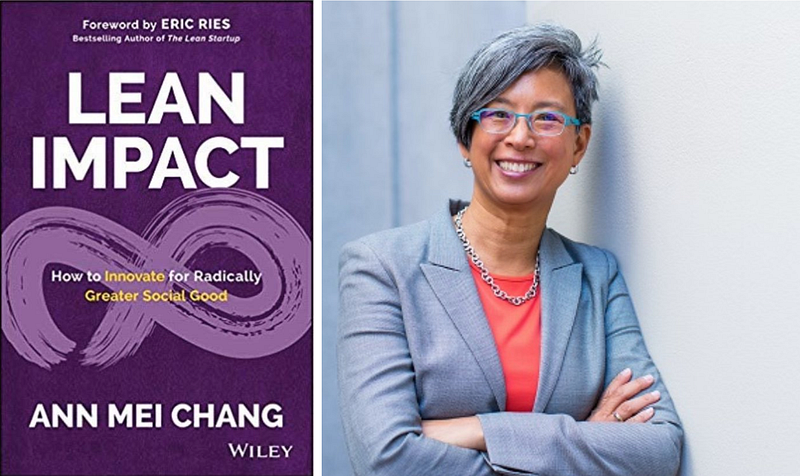
- We work with the UK Dept. for International Development to take innovation method from the start-up world to the development sector. We’re seeing not-for-profits adopt lean startup approaches and methods more and more to ensure their funding is targeted at achieving greatest impact. For example, USAID are A/B testing their programmes. Linked to this, Evidence Action have admitted one of their programmes isn’t working.
- Let’s stop talking about THE design thinking process, from Stanford d.school’s Director of Teaching and Learning. The d.school has been design thinking proponents for decades, but they feel we’ve all got a bit fixated on the process to the detriment of outcomes. By shifting how we think about design pedagogy and moving away from a rigid process, might we unlock new, better ideas and new applications.
- Design thinking is fundamentally conservative and preserves the status quo, Harvard Business Review. An important, critique of design thinking.
Design thinking is a useful tool in the innovation process, but it’s just one of many tools we can draw upon. These two articles summarise brilliantly why, in our books, it’s super important to remain method agnostic and embrace critical thinking above all else. — Lea Simpson, Founder, Brink
- Why big companies squander good ideas. The FT’s Undercover Economist Tim Harford on the real reasons that corporate innovation dies. When you truly examine the evidence, disruption is a fallacy. The biggest predictor of whether an incumbent can scale a new idea is how similar are the organisational architecture requirements of the new product or service to the existing business capabilities and structure.
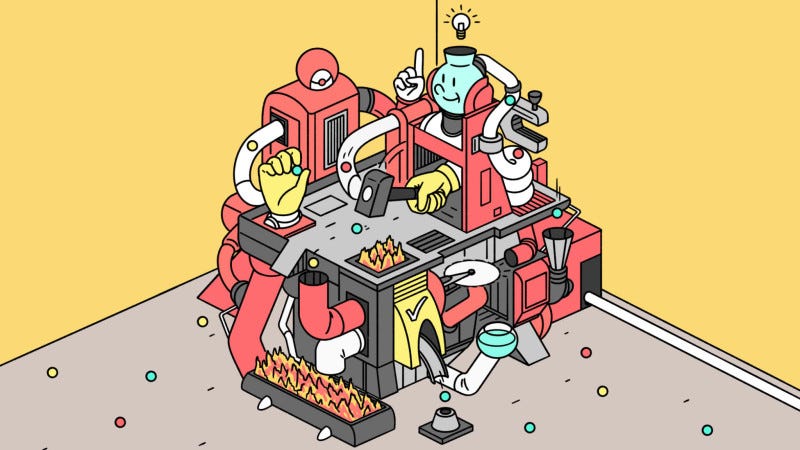
- Facebook’s Innovators Dilemma. Innovation used to be defined as how to build products or services that bring enough joy or alleviate enough pain that people or organisations would buy. But the new innovator’s dilemma might be how to build with (and not against) the forces of social change.
- Innovation can come shrouded in mystique. We loved these five straightforward and easy-to-apply methods any innovation team can apply tomorrow.
- And finally, on a lighter note… Particularly when you spend all your time in immersed in tech (where every day brings a new innovation or breakthrough), never underestimate the impact of incremental, non-newsworthy, common-sense trends compounded over time. “Greg Jones, an analyst at Merrill Lynch, expected that no one would care about that useless, vapid, fact by tomorrow.”
What’s next on our reading list for 2019:
These are ours. We’d love to hear yours. Let us know in the comments below what you’ve most enjoyed or valued this year, and what’s next on your reading list. We’ll add it to our pile.

- Leaders, Stanley McCrystal. The retired US Army general and bestselling author of Team of Teams, profiles thirteen great leaders to show that leadership is not what you think it is — and never was
- .21 Lessons, Yuval Harari. “What are today’s greatest challenges and most important changes? What should we pay attention to? What should we teach our kids?”
- The Future of Coaching: Vision, Leadership and Responsibility in a Transforming World, Hetty Einzig. Examining the role of coaching and leadership in the 21st century, with a compelling vision for its future.
- Winners Take All, Anand Giridharadas. Coming out in Spring 2019. An insider’s groundbreaking investigation of how the global elite’s efforts to “change the world” actually preserve the status quo and obscure their role in causing the problems they later seek to solve.
- Doughnut Economics, Kate Raworth. The demands of the 21st century require a new shape of economics, a system that meets all our needs without exhausting the planet.
- The Heretics, Will Storr. What it means to believe anything, as told via adventures with disbelievers and the enemies of science.
We love to curate reading lists and it’s something we do with our clients, most recently for the innovation unit of a UK Government Department. If you’ve enjoyed this list and found it useful, would you like us to curate a bookshelf for your team? Drop us a line at [email protected] and let’s talk.
